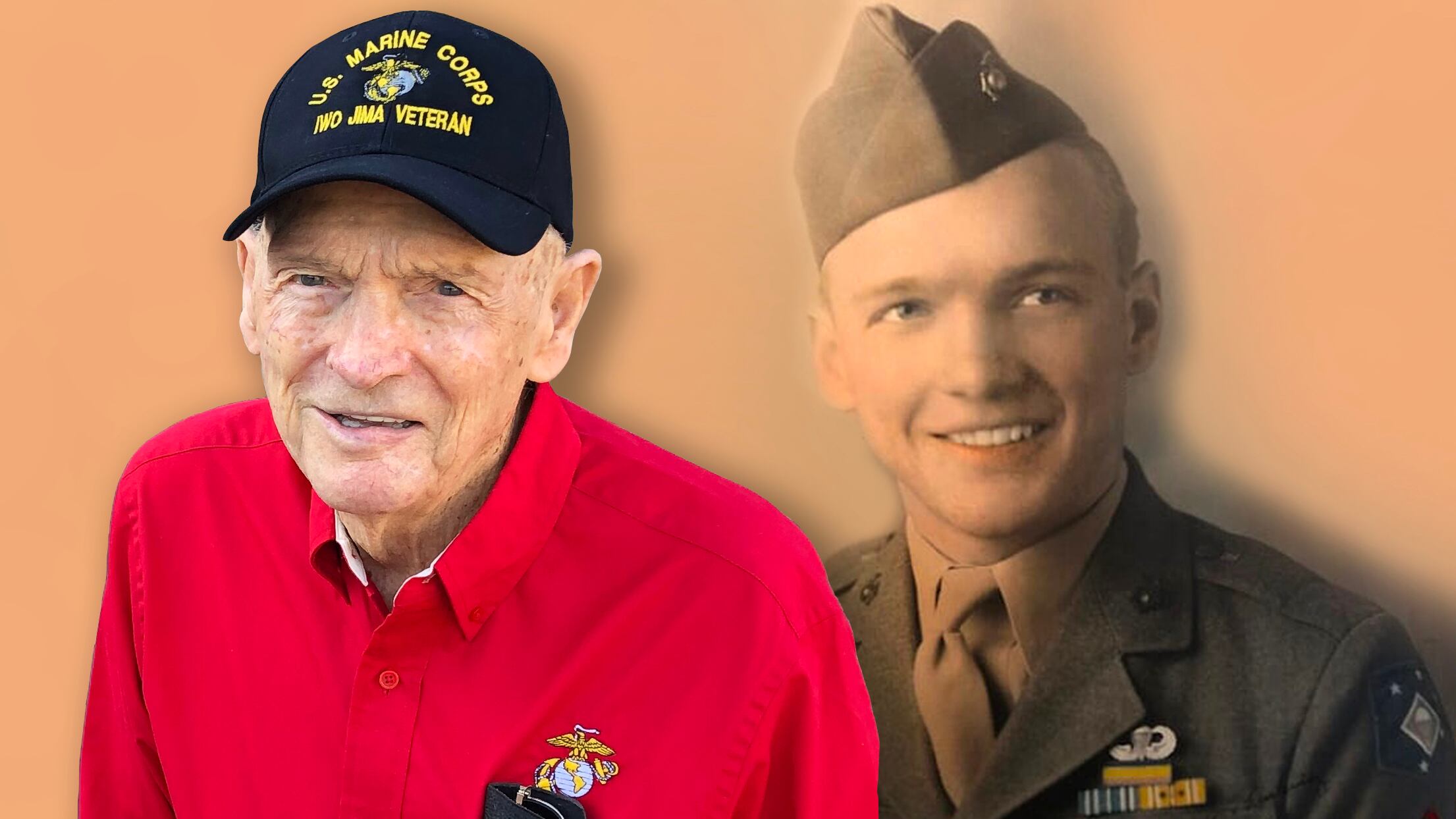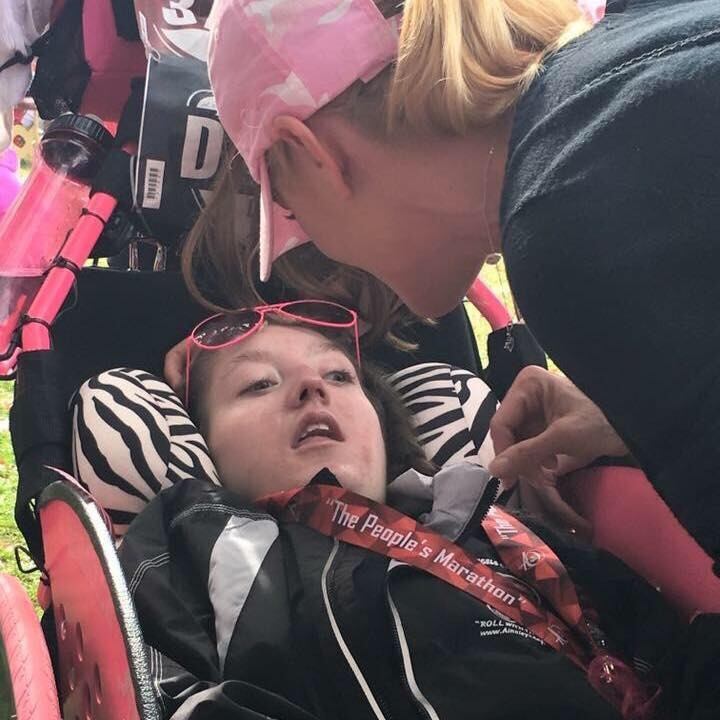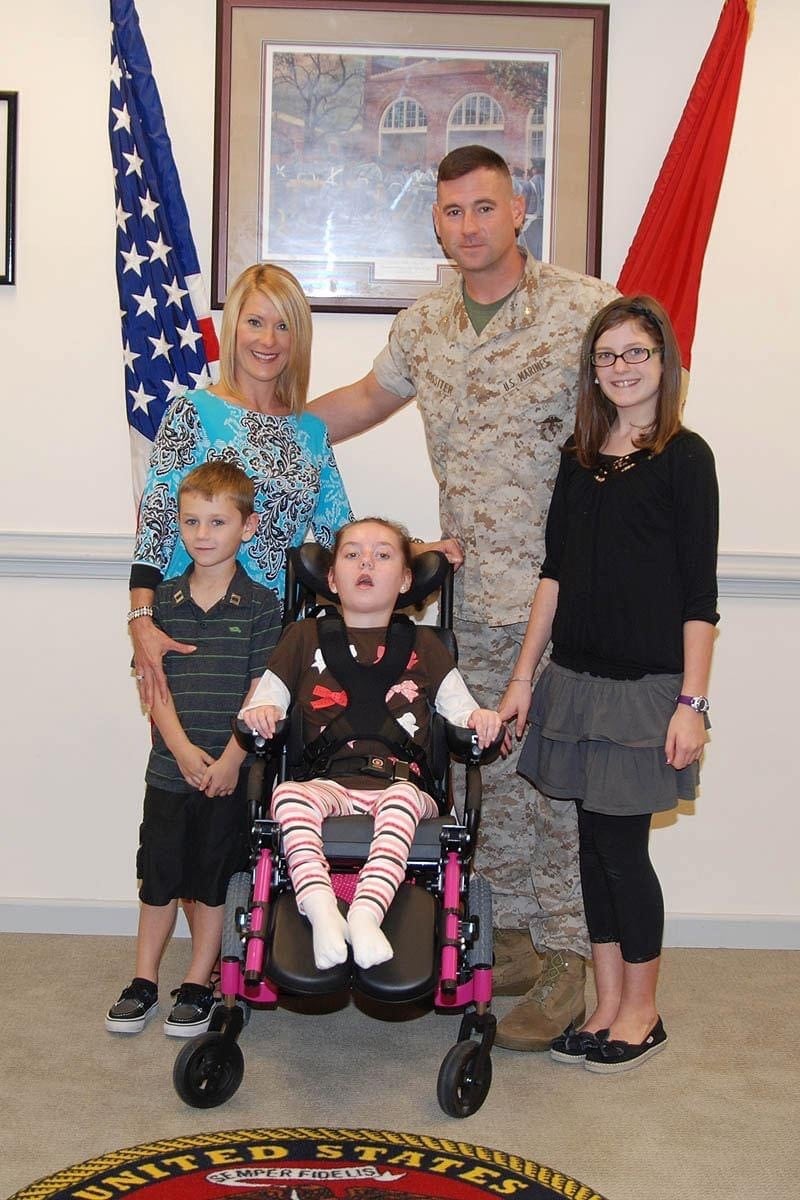With almost 25 years in the Marine Corps behind him and a promotion dangling in front of him, Maj. Kim Rossiter decided to take the right fork in the road and retire.
He wanted to focus on a new venture, a nonprofit offering assistance to disabled people in order to empower them to participate in athletic competitions. Ainsley’s Angels does just that.
“And we have an opportunity to just make sure everybody can be included in running events, and swimming events, and triathlons,” Rossiter told Marine Corps Times by phone. “I’m just focusing on building this program to as big as we can make it, and it’s been quite the blessing.”

Sunday was a great day for Virginia-based Ainsley’s Angels. Rossiter’s nonprofit built a racing wheelchair for T. Fred Harvey, a WWII Iwo Jima Marine who used it to roll some 26 miles in Texas during the annual Marine Corps Marathon, making him the oldest Marine to participate in the event in its 45 years.
“We were scheduled to have 30 to 35 teams participate, but of course COVID changed plans, and we’re doing it all virtually across the country,” Rossiter said.
RELATED

The racing “chariot,” as Harvey calls it, cost $5,000 to build and was donated to the MCM for disabled Marines and others to use in future races. Harvey’s team, which included active-duty Marine Master Gunnery Sgt. Mike Lawrence, raised close to that through its GoFundMe campaign. All funds raised beyond that will be donated to the MCM and the National Museum of the Pacific War, according to organizers.
“So, we got an active duty, soon-to-be-retired master gunny pushing the private first class from Iwo Jima,” Rossiter said. “That’s a beautiful thing.”
There are four types of chairs Ainsley’s Angels uses. One type is an inexpensive wheelchair mass-produced in China. Those cost about $1,000 and are the ones the nonprofit grants to disabled adults and the families of special needs children, Rossiter said.
More effort goes into customizing a chair like the one Team Harvey used. It was manufactured in Washington and great care was put into making it as comfortable and safe as any other adaptive equipment for the handicapped, Rossiter said.
The nonprofit’s participants have ranged in age from a 14-month-old special needs child to a 108-year-old senior.
“Triple great-grandfathers, who had never thought in their wildest dreams they would have a chance to have their great, great, great grandson push them in a 5K or 10K event,” Rossiter said.
For special needs families, having their children participate in a marathon can be extremely therapeutic and offer parents a respite.
“If you’ve ever tried to be a caregiver to someone that is relying on you 24 hours a day, it can be very challenging for the caregiver, despite the amount of love that you have for that person,” Rossiter said. “Everybody needs a break.”
During a two-hour half marathon or a five-hour full marathon, loved ones are able to relax, and cheer on their special needs kids, Rossiter said.

Rossiter’s involvement with the Marine Corps Marathon began in 2011, when he and his wife, Lori, wanted to push their daughter, Ainsley, in a wheelchair during the race.
“As an active-duty Marine at the time, I thought that it would be a wonderful experience for both of us,” Rossiter said. “I went out there and executed, and it was an amazing time, and that led to a Marine Corps Marathon – Ainsley’s Angels charity partnership.”
Ainsley’s Angels has participated in every Marine Corps Marathon since as an official charity partner.
Many of the Ainsley’s Angels volunteers are people Rossiter has met throughout his Marine Corps career, he said. There are Navy and Marine Corps volunteers who “lend their legs” as runners, help perform maintenance on the racing chairs and assist in recruiting other volunteers.
Some volunteers, dubbed “Ainsley’s Angels,” establish charter locations across the country for the nonprofit.
“There’s a Navy Seabee who for the first time — she heard about what we were doing and joined our Marine Corps Marathon charity team last year — ran the Marine Corps Marathon with us in 2019, and within a month later said, ‘I want to bring this program to my home in New Hampshire,’” Rossiter said.

Ainsley’s diagnosis and legacy
“Somewhere during an Iraq deployment in 2005, my wife was like, ‘Hey, something’s not really right. She’s not walking yet.’ Two to three years later, we had a diagnosis,” Rossiter said.
Just before turning 4 years old in 2007, Ainsley was diagnosed with early-onset Infantile Neuroaxonal Dystrophy, a rare terminal illness that caused her to slowly become paralyzed. She eventually lost her battle with the disease in February 2016.
When Rossiter learned the news about Ainsley’s diagnosis, he was deployed aboard the amphibious assault ship Bataan in the Indian Ocean with the 26th Marine Expeditionary Unit. Later that year, Rossiter and his family were moved from Camp LeJeune to Virginia, where he served until his retirement in October 2018.
It was during that time in Virginia the Rossiters began developing the concept for Ainsley’s Angels, which just started out as fun runs to raise family morale. Officially launched in October 2011, Ainsley’s Angels is now up to 25,000 members in 34 states and 75 cities across the country.
Jared is the manager of print design for Sightline Media Group's five magazines under the Military Times and Defense News banners.





